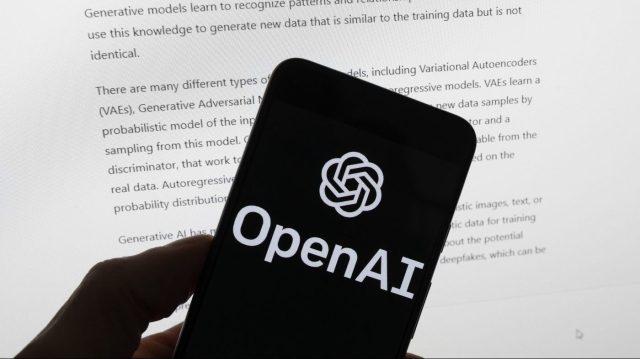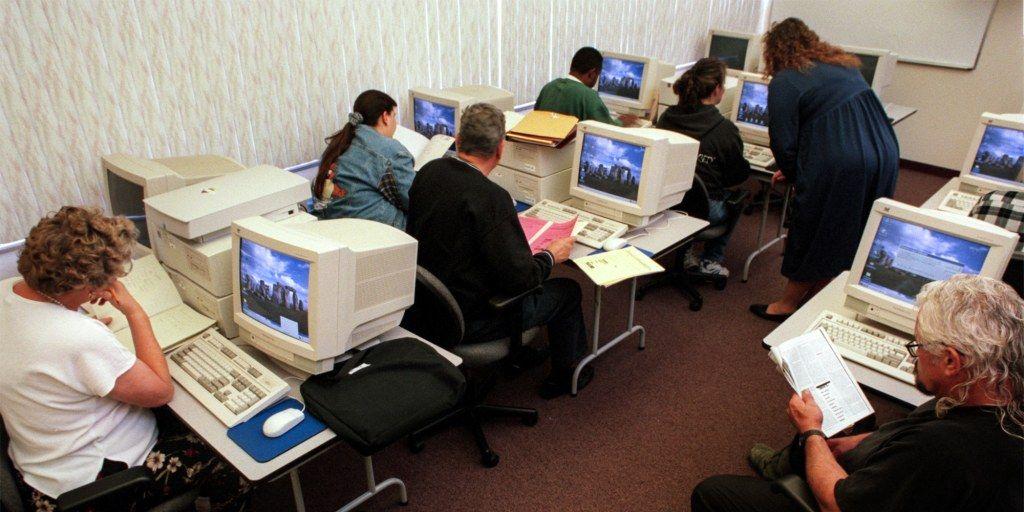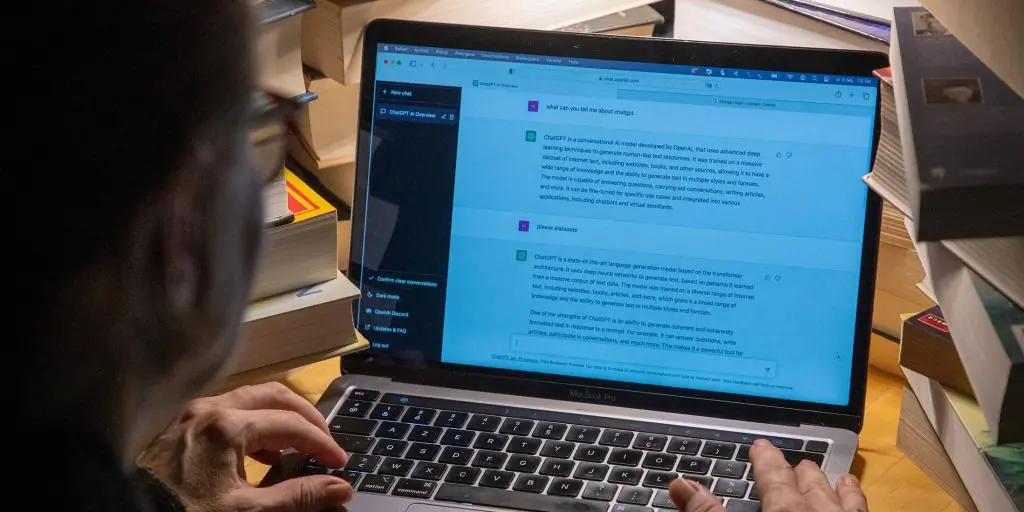Americans Divided on AI's Impact: New Poll Reveals Split Opinions on Technology's Future Role
3 Sources
3 Sources
[1]
Poll: As Americans form views on AI, they're divided on its role in school and everyday life
Among U.S. adults, 44% said they think AI will make life better, while 42% think AI will make life worse. But most respondents don't hold strong feelings on the issue. Americans are almost evenly split on several questions measuring their views on artificial intelligence, with no meaningful differences based on age and partisanship, according to the NBC News Decision Desk Poll powered by SurveyMonkey. The split views on AI use and AI's impact on the future come as elected officials in Washington have largely left AI companies untouched, introducing few regulations that constrain them. President Donald Trump has undone many of the initial attempts at regulation and oversight put in place by then-President Joe Biden, and many Republicans have embraced the Trump administration's anti-regulation stance on AI. But in the background, college professors and teachers across the U.S. have expressed exasperation at the potential influence that increasing student use of AI could have on young minds, and many progressives have balked at AI's potential influence on the job market and the environment, with many urging others to abandon the use of AI altogether. Slightly less than half -- 44% -- of U.S. adults surveyed said that they used AI tools like ChatGPT, Google Gemini or Microsoft Copilot "sometimes" or "very often," while 56% said they used these tools "rarely" or "never." The poll, which also surveyed respondents about politics and the Trump administration, found no meaningful breakdowns in AI tool use by political party. Looking at the issue by partisanship, 14% of Republicans, 14% of Democrats and 15% of independent voters said they used AI tools "very often," while another 28% of Republicans, 31% of Democrats and 31% of independent voters said they used AI tools "sometimes." Then, 29% of Republicans, 31% of Democrats and 28% of independent voters said they "rarely" used AI tools. The survey also asked respondents to consider the impact of AI on the future. While 44% of American adults surveyed said they thought AI would make their and their families' lives "much better" or "somewhat better," illustrating the evolving and still-forming nature of the public's feelings on AI, just 7% of those surveyed said they felt it would make lives "much" better, with 37% choosing the "somewhat" option. Meanwhile, 42% of respondents said they thought AI would make their and their families' futures "somewhat worse" or "much worse." Again, a smaller portion of respondents -- in this case, 16% -- said that AI would make their futures "much" worse. Once again, there were few strong divisions among respondents by partisanship. Exactly half of Republicans responded that they expected their futures to be "much better" or "somewhat better" due to AI. Slightly fewer Democrats -- 42% -- and independent voters -- 41% -- said the same. Similarly, 39% of Republicans said they thought AI would make their and their families' futures "somewhat worse" or "much worse," while slightly more Democrats -- 47% -- said the same. Forty-three percent of independent voters also said that AI would make the future somewhat or much worse. The survey also tested views about the use of AI in schools, with a near even split among American adults about whether using AI tools in schools prepares students well for the future. Just over half -- 53% -- of survey respondents agreed that the integration of AI tools in the classroom could better prepare students for the future. The remainder -- 47% -- thought that prohibiting the use of AI tools in the classroom would better prepare students. The divide comes as educators grapple with the encroachment of increasingly accessible technologies capable of helping students research, study or cheat more efficiently. While some teachers have swung back toward handwritten essays and in-class work in efforts to prevent AI use, others have embraced AI by intentionally integrating it into assignments. Last year, OpenAI rolled out ChatGPT Edu, a version of its flagship chatbot made specifically for use on college campuses. Google's Gemini and Microsoft's Copilot are also among the major AI models that have introduced tools for education. And AI-powered tutors or assistants -- from newer platforms like SchoolAI to more traditional ones like Khan Academy -- increasingly offer services for educators. Once again, there were no significant breaks along party lines in people's views of the use of AI in schools. Slightly more Democrats -- 57% -- agreed with the first premise, that schools that actively integrate AI in the classroom better prepare students for the future. Fifty percent of Republican voters and 51% of independent voters said the same. Meanwhile, 50% of Republicans agreed with the second statement, that schools that prohibit the use of AI in the classroom better prepare students. Forty-nine percent of independent voters and 43% of Democrats said the same. Among age groups, there was also little variation in views of the use of AI in schools. Adults ages 18 to 29 were evenly split, with 50% supporting schools incorporating the use of AI in the classroom and 50% supporting schools that prohibit the use of AI in the classroom. In the next-oldest generation -- those ages 30 to 44 -- 54% of respondents supported schools using AI and 46% supported schools that prohibit AI. Older generations also did not have significant splits on the use of AI in schools.
[2]
American attitudes about AI today mirror poll answers about the rise of the internet in the '90s
A class in the Computer Training Center at Conejo Valley Adult School in Thousand Oaks, Calif., in 1997.Anne Cusack / Los Angeles Times via Getty Images file Artificial intelligence chat tools like OpenAI's ChatGPT, Google's Gemini and Microsoft's Copilot have achieved significant public adoption, according to the latest NBC News Decision Desk Poll powered by SurveyMonkey. Nearly three-quarters of adults -- 74% -- say they've used one of the tools at some point. And 44% say they use them "sometimes" or "often." Despite rising acceptance, the future ubiquity of artificial intelligence tools like those put out by OpenAI and Google remains an open question. Polling data suggests that current adoption rates of AI chat tools look similar to internet adoption rates at the turn of the century. But the trajectory of AI's growth and the challenges it faces are unique. When an October 1998 Newsweek poll asked respondents how often they were using the internet, 38% said once a week or more. By June 2000, an NBC News/Wall Street Journal Poll found that 71% adults had internet access and that among that group, three-quarters were using it for at least an hour a week. Internet use has, of course, only continued to rise since 2000. Daily internet use is now a more relevant metric than weekly use, and much of the public debate centers on what limits to internet access are necessary. The NBC News Decision Desk Poll identifies how public reservations shape opinions about AI adoption. In the recent survey, 47% said they believe a school that prohibits using AI would better prepare students for the future. That sentiment extends even to the most frequent AI chat tool users -- one-fifth of those who say they use AI tools "often" say prohibiting them in the classroom would better prepare students. Society's concerns about internet ubiquity may mean we're in new territory regarding technological caution. Yet, it's important to remember that public sentiment toward new technologies doesn't always prioritize adoption. When CBS News asked in 1999 whether the ability to use the internet was important for school-age children, 48% said it wasn't all that important.
[3]
Americans split on whether AI will make life better or worse: Survey
Americans are split on whether artificial intelligence (AI) will make life better or worse, according to an NBC News Decision Desk Poll released Wednesday. Asked about AI's impact on "the life of you and your family" overall, 7 percent of respondents said lives will be "much better," 37 percent said "somewhat better," 26 percent said "somewhat worse," 16 percent said "much worse," and 13 percent said it will have "no effect." AI has rapidly transformed the tech world, turning chip makers like Nvidia into a behemoth and stirring competition between giants including Alphabet, Meta and OpenAI, which is backed by Microsoft. Earlier this year, President Trump announced a joint effort to invest up to $500 billion in building the infrastructure necessary for AI development over his second round in the White House, involving SoftBank, OpenAi and Oracle. A survey from earlier this year found that a majority of Americans have used ChatGPT-like AI models. In the survey from Elon University's Imagining the Digital Future Center, 52 percent said they "use artificial intelligence (AI) large language models," a category that includes OpenAI's famous ChatGPT. In the NBC News Decision Desk Poll, 14 percent of respondents said they used "AI tools such as ChatGPT, Google Gemini or Microsoft Copilot" very often, 30 percent said sometimes, and 26 percent said they never use the tools. The NBC News Decision Desk Poll was taken from May 30 to June 10, featuring 19,410 people with plus or minus 2.1 percentage points as its estimated margin of error.
Share
Share
Copy Link
A recent NBC News Decision Desk Poll shows Americans are almost evenly split on their views about artificial intelligence's impact on everyday life, education, and the future, with no significant differences based on age or political affiliation.
Americans Divided on AI's Impact
A recent NBC News Decision Desk Poll has revealed that Americans are almost evenly split in their views on artificial intelligence (AI) and its potential impact on various aspects of life. The survey, which gathered responses from 19,410 people between May 30 and June 10, shows a nation grappling with the implications of this rapidly advancing technology
1
.AI's Influence on Daily Life
When asked about AI's impact on their lives and those of their families, 44% of respondents believed it would make life "much better" or "somewhat better," while 42% thought it would make life "somewhat worse" or "much worse"
1
. Interestingly, only 7% felt AI would make life "much better," indicating a general sense of caution among the public3
.AI Tool Usage and Adoption

Source: The Hill
The poll revealed that 44% of U.S. adults use AI tools like ChatGPT, Google Gemini, or Microsoft Copilot "sometimes" or "very often," while 56% use them "rarely" or "never"
1
. This level of adoption is reminiscent of internet usage rates in the late 1990s and early 2000s, suggesting that AI might be following a similar trajectory of public acceptance2
.Political Perspectives on AI
Surprisingly, the survey found no significant differences in AI views based on political affiliation. Republicans, Democrats, and independent voters showed similar patterns in their usage of AI tools and expectations for AI's impact on the future
1
. This lack of partisan divide suggests that AI is currently viewed as a non-political issue by the general public.AI in Education
The poll also explored opinions on AI's role in education, revealing another close split. 53% of respondents believed that integrating AI tools in classrooms would better prepare students for the future, while 47% thought prohibiting such tools would be more beneficial
1
. This division reflects the ongoing debate among educators about how to approach AI in academic settings.Related Stories
Generational Perspectives
Contrary to what some might expect, the survey found little variation in views on AI across different age groups. Even among adults aged 18 to 29, opinions were evenly split on whether schools should incorporate or prohibit AI use in classrooms
1
.Historical Context

Source: NBC
The current attitudes towards AI mirror those seen during the rise of the internet in the 1990s. A 1998 Newsweek poll showed that 38% of respondents used the internet once a week or more, while a 2000 NBC News/Wall Street Journal Poll found that 71% of adults had internet access
2
. This historical parallel suggests that AI adoption might follow a similar pattern of gradual acceptance and integration into daily life.Future Implications

Source: NBC
As AI continues to evolve and permeate various sectors, including education and the job market, public opinion will likely play a crucial role in shaping policies and regulations. President Trump's recent announcement of a $500 billion investment in AI infrastructure development, involving companies like SoftBank, OpenAI, and Oracle, underscores the growing importance of AI in national strategy
3
.The divided opinions revealed by this poll highlight the need for ongoing public discourse and education about AI's potential benefits and risks. As AI technology advances, it will be crucial for policymakers, educators, and industry leaders to address public concerns and work towards responsible AI development and implementation.
References
Summarized by
Navi
[2]
Related Stories
Recent Highlights
1
Google Gemini 3.1 Pro doubles reasoning score, beats rivals in key AI benchmarks
Technology

2
Meta strikes up to $100 billion AI chips deal with AMD, could acquire 10% stake in chipmaker
Technology

3
Pentagon threatens Anthropic with supply chain risk label over AI safeguards for military use
Policy and Regulation








